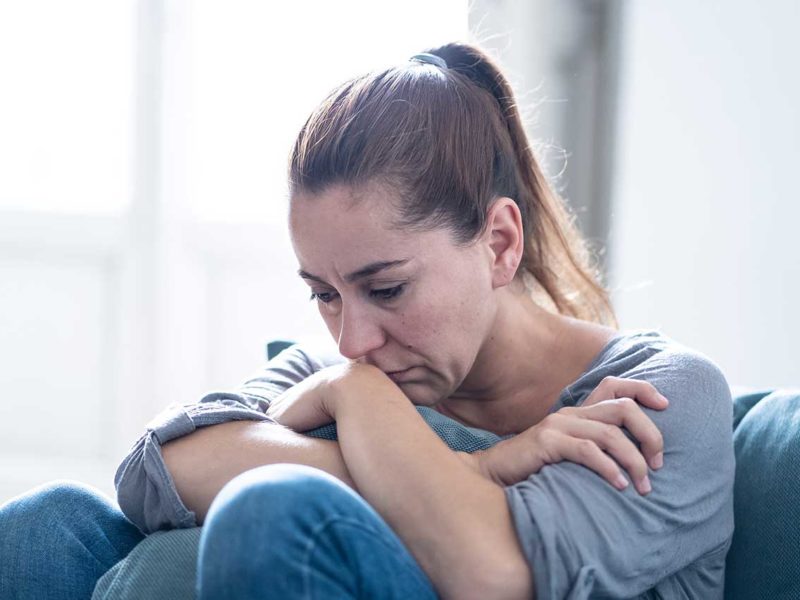When the world came to a halt the orders for craft supplies on Amazon seemed to triple. Home Depot found DIY home and garden materials begin to fly off the shelves. Peloton increased their revenue by untold numbers and grocery stores couldn’t stock enough yeast and flour to meet the demands of every millennial baking bread. While a generation of social media celebrities was born on platforms like Instagram and TikTok, a nefarious wave of substance abuse moved quietly through the country rendering many helpless and hopeless; trapped in despair and uncertainty.
The sudden spike in addiction and alcoholism seems to be a response to a global catastrophe. People are struggling and with struggle comes the need to cope. Coping can look like pursuing a hobby or getting fit, it can also look like creating art or learning a new skill. Coping can take different forms for every individual, unfortunately for those most vulnerable to substance abuse, coping often manifests in using drugs or abusing alcohol; sometimes both. It stands to reason that stress and coping existed before covid-19, so why the rise in substance abuse?
Job Loss
As mandatory lockdown went into effect and non-essential businesses were forced to close, many businesses owners were forced to shut their doors indefinitely. Without warning, individuals and families were cast into the stressful and often complicated world of unemployment and job searches. With limited prospects on the horizon these individuals were forced to confront the possibilities of homelessness and hunger. While alcohol and drugs may seem an obvious accelerant to this problem, the numbness and inebriation offered an escape from the reality of discomfort and fear. Steady employment can offer a purpose or distraction from one’s own suffering but the burden of unemployment could create circumstances for desperate escapism.
Working From Home
Those who were fortunate enough to continue their positions from a remote location faced their own struggles. Formally a retreat from the pressures of office life, now our homes were an inescapable reminder of professional demands. The separation of work and family life became blurred as Zoom meetings were interrupted by insistent children and excitable pets. Unable to escape the endless expectations of both roles, individuals reported an increase in alcohol intake and a decrease in hours before the first drink. We’ve also seen a rise in stimulant abuse as individuals working from home attempt to increase focus and productivity.
Anxiety & Depression
Substance abuse is but a symptom of an existing circumstance, this could be a genetic predisposition, an experience of trauma or grief or it could be an untreated mental illness. Individuals suffering from anxiety and depression have reported worsening of symptoms since the start of the pandemic. With limited access to medical resources, many found themselves attempting to manage their symptoms with insufficient medication or no medication at all. Drugs and alcohol cannot treat depression or anxiety, in fact, they notoriously amplify those conditions but despite the consequences, some individuals with mental illness are willing to accept increased severity of symptoms in exchange for the ability to mask those symptoms while using drugs or alcohol.
Accountability & Social Interaction
Spending the last year at home or smiling from behind a mask has limited the connections we experience on a pre-covid typical day. The monotony of quarantine and social distancing left little to anticipate or look forward to and without the accountability of clocking in at an office every day, who could stop you from drinking or using substances? Working remotely has enabled those who use drugs and alcohol to conceal the amount and frequency of their use. Hangovers and intoxication are easily obscured when your only interactions are through a computer screen allowing most substance abuse to continue undetected.
Access to Treatment
As businesses closed, medical facilities including substance abuse treatment centers were forced to confront the overwhelming task of infection control with an ever-rotating population of mixed demographics, often including covid vulnerable populations. Medically compromised staff turned in resignations and employees with children were called home to supervise virtual school. Demand for PPE left treatment centers without proper protection for their existing staff. Additionally, little could be done to enforce mask mandates and social distancing practices with newly sober clients suffering through post-acute withdrawal symptoms which can include confusion or forgetfulness. With treatment facilities closed or limited in capacity, those in need of treatment resigned themselves to dangerous attempts at detox and recovery without medical supervision.
Covid-19 has highlighted the severity and prevalence of substance use disorder in the united states but contrary to common conclusion, Covid-19 did not create the epidemic of addiction we are currently facing. Pandemic protocol and social isolation may have exacerbated the pre-existing and would-be cases of addiction and alcoholism, but the pervasive problem of drug and alcohol abuse has run rampant through this country for decades, reaching a particular peak from the 1990s to the present with universal access to highly addictive prescription opioids.
While access to covid-safe, effective substance abuse treatment may be limited at the moment, we are hopeful that lost facilities will recover, or new improved programs will rise in their stead. Until that time Mississippi Drug and Alcohol Treatment Center continues to offer premier service in addiction and treatment of alcoholism. We are committed to covid compliance protocol, ensuring the safety of both clients and staff alike. Covid-19 has taken so much from our communities and families, do not let it prevent you or your loved one from getting the help you need and the recovery you deserve, today!


 What to Do After a Relapse
What to Do After a Relapse